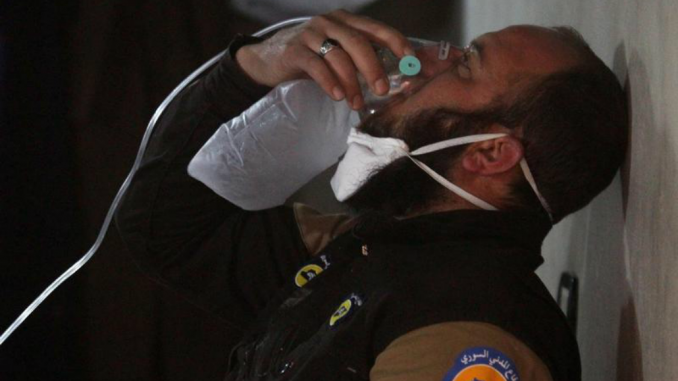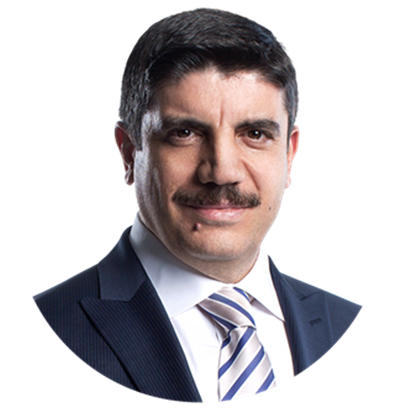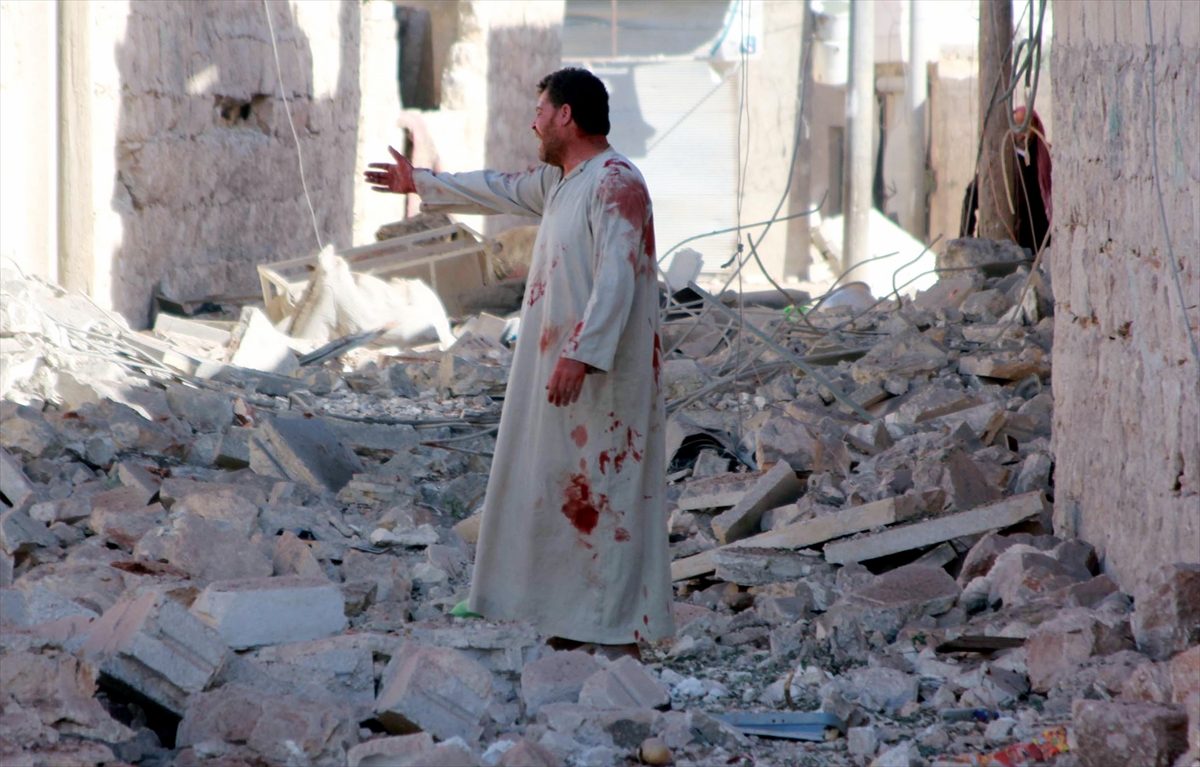
Trump administration officials on Sunday blamed Russian inaction for enabling a deadly chemical attack last week, sending in addition mixed messages about their future policy in Syria after it was focused only on fighting ISIS.
More than 60 civilians were killed in Syria in a new chemical attack carried out by Assad regime’s air force on the rebel-held Idlib province last week.
In a sharp escalation of the U.S. military role in Syria, two U.S. warships fired dozens of cruise missiles from the eastern Mediterranean Sea at the airbase controlled by Assad regime forces in response to the attack, U.S. officials said.
Fifty-nine Tomahawk missiles were launched from the USS Porter and USS Ross around 8:40 p.m. EDT, striking multiple targets – including the airstrip, aircraft and fuel stations – on the Shayrat Air Base, which the Pentagon says was used to store chemical weapons.
Trump ordered the strikes just a day after he pointed the finger at Assad for this week’s chemical attack.
“Tonight I ordered a targeted military strike on the airfield in Syria from where the chemical attack was launched.”
“Years of previous attempts at changing Assad’s behavior have all failed and failed very dramatically,” Trump said on Thursday.
Russia is blamed
US Secretary of State Rex Tillerson said Syria was able to execute the attack, which killed scores of people, because Moscow had failed to carry out a 2013 agreement to secure and destroy chemical weapons in Syria.
White House National Security Adviser H.R. McMaster said Syria’s “sponsors,” Russia and Iran, were enabling President Bashar al-Assad’s “campaign of mass murder against his own civilians.”
But Tillerson, who is expected to visit Moscow on Wednesday for talks with Russian officials, said on ABC’s ‘This Week’ program there was “no change” to the U.S. military posture toward Syria.
“I think the real failure here has been Russia’s failure to live up to its commitments under the chemical weapons agreements that were entered into in 2013,” Tillerson said.
“The failure related to the recent strike and the recent terrible chemical weapons attack in large measure is a failure on Russia’s part to achieve its commitment to the international community,” he added.
Tillerson stopped short of accusing Russia of direct involvement in planning or carrying out the attack, saying he had not seen “any hard evidence” to suggest Moscow was an accomplice to Assad.
But he said the United States expected Russia to take a tougher stance by rethinking its alliance with Assad because “every time one of these horrific attacks occurs, it draws Russia closer into some level of responsibility.”
Further action needed
However, McMaster said the United States would take further action in Syria if necessary.
“We’re prepared to do more. In fact, we were prepared to do more two days ago,” McMaster said. “The president will make whatever decision he thinks is in the best interests of the American people.”
McMaster said Russian leaders were supporting “a murderous regime” and their actions would dictate the future of U.S.-Russian relations.
McMaster said also the US was still willing to make a rapprochement with the Kremlin, as Trump has suggested for months.
“Russia could be part of the solution,” McMaster said. “Do they want it to be a relationship of competition and potential conflict? I don’t see how that’s in Russian interests. Or do they want it to be a relationship in which we can find areas of cooperation that are in mutual interests?”
The relationship, he said, could be “whatever the Russians wants it to be”.
McMaster also said, in a shift that aligned Trump with Barack Obama before him, the president believes a political solution in Syria is all but impossible if Assad remains in power.
“It’s very difficult to understand how a political solution results from a continuation of the Assad regime,” he said. “We’re not saying that we’re the ones to effect that change.”
What are the next moves, exactly?
The US ambassador to the UN Nikki Haley reassured McMaster statement, saying that “a political solution to the war in Syria is not possible with Bashar al-Assad in power.”
“Defeating the Islamic State (ISIS) group, pushing Iranian influence out of Syria, and the removal of Assad are priorities for the US administration.”
“There is no political solution with Assad at the lead,” she said. “That’s not something the United States has decided, it’s something the international community has decided.”
Haley added that Trump was ready to order American soldiers to attack again.
“He won’t stop here,” Haley told CNN’s State of the Union. “If he needs to do more, he will do more. What happens really depends on how everyone responds to what happens in Syria. The United States is going to continue to watch and be active and we’ll see what happens.”
The comments represented a departure from what Haley had said before the US strike.
“You pick and choose your battles and when we’re looking at this, it’s about changing up priorities, and our priority is no longer to sit there and focus on getting Assad out,” Haley had said on March 30, just days before dozens of Syrian civilians died from chemical weapons injuries.
Rex Tillerson, US secretary of state, seemed to take a more patient stance with regard to Assad, saying on Saturday that the administration’s first priority is the defeat of ISIS.
Once the threat from ISIS has been reduced or eliminated, “I think we can turn our attention directly to stabilizing the situation in Syria,” Tillerson said in excerpts from an interview on CBS’s Face the Nation.
He said the US is hopeful it can help to bring parties together to begin the process of hammering out a political solution.
On Sunday, Putin spoke on the phone with the Iranian president, Hassan Rouhani. According to a Kremlin summary of the call, the two leaders noted: “The aggressive US actions against a sovereign state, which violate international law, are unacceptable.”
The Syrian crisis began as a peaceful demonstration against the injustice in Syria. Assad regime used to fire power and violence against the civilians and led to armed resistance. 450.000 Syrians lost their lives in the past five years according to UN estimates, and more than 12 million have lost their homes.



